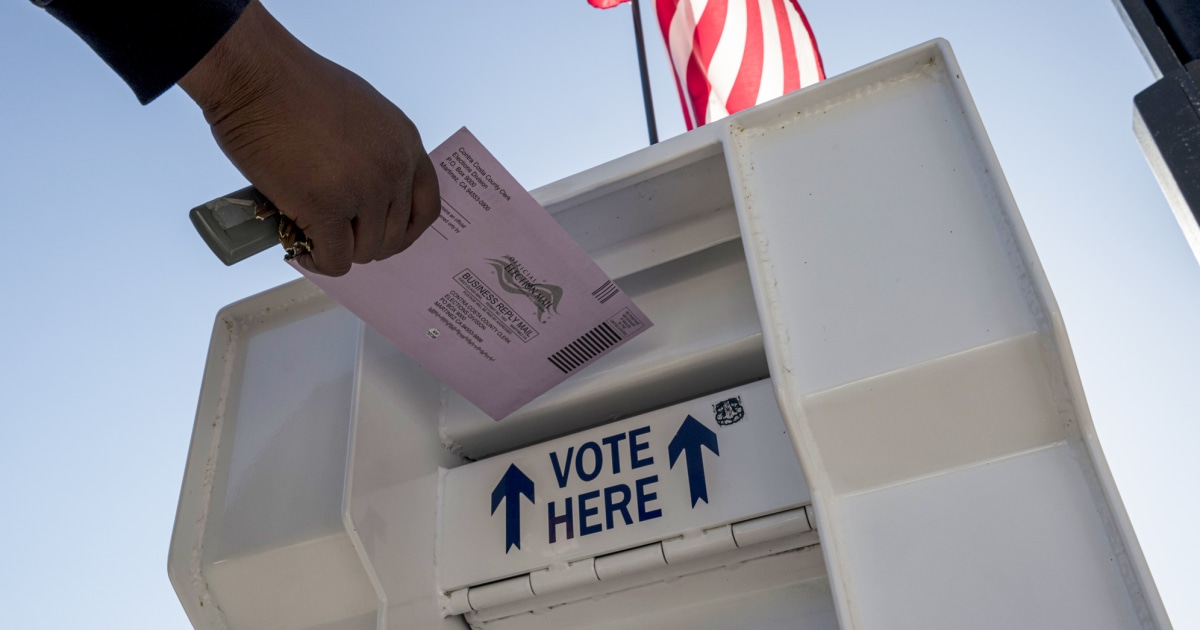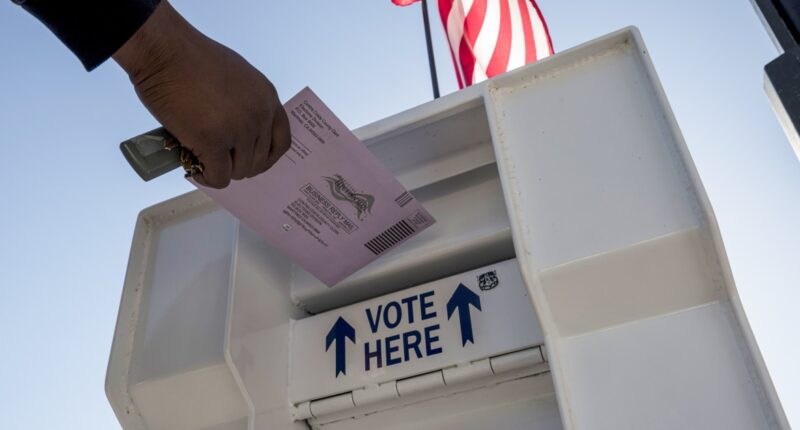
Legislators in 38 states have introduced nearly 200 bills this year that would allow state governments to “subvert” elections, according to a report by three nonpartisan groups tracking such bills.
The analysis by the States United Democracy Center, Protect Democracy and Law Forward found that legislators — predominantly Republicans — put forward 185 bills in their state legislative sessions from Jan. 1 through May 3 that would increase the risk of subversion by politicizing, criminalizing or interfering with elections.
That number is on pace with those from sessions in the past two years, which the groups also tracked. Fifteen of the bills introduced this year have so far been enacted.
NBC News obtained the report ahead of its public release Thursday morning.
Its findings suggest that the election denial movement is alive and well in statehouses across the U.S. — even though an overwhelming number of election deniers (candidates who have echoed former President Donald Trump’s continuing false claims that the 2020 election was stolen from him) lost their races in pivotal battleground Senate and secretary of state elections in last year’s midterms — and that attempts to make it easier to overturn elections will persist if such legislation is left unchecked.
The analysis defined election subversion as the result of any bill that proposed one of five actions: usurping control over election results, requiring partisan or unprofessional election audits or reviews of results, seizing power over election responsibilities, creating unworkable burdens in election administration or imposing disproportionate criminal or other penalties.
“Legislators are trying to make it harder for trusted election officials to do their jobs, and easier for partisan politicians to overturn the will of the voters. While many may think this threat abated after the midterms, it most certainly did not,” Maya Ingram, a senior policy development counsel at the States United Democracy Center, said in a statement to NBC News. “In fact, legislators are coming up with new ways to interfere with elections.”
The authors of the analysis wrote that many of the bills are designed “to inject confusion and delays into the election process, which increases the likelihood of attempted subversion and can give rise to disinformation, further eroding public trust and confidence in election results.”
Such scenarios resulting from many of the proposed laws are most dangerous in close elections, the authors said, because “partisan actors” would be able to use them to exploit confusion over the results “to claim that the true will of the voters cannot be determined” and to “engineer the outcome of their choice.”
For example, Republican legislators in Texas proposed a bill — HB 5082 — that would give state officials the authority to order new elections in counties whose populations exceed 1 million people if there is “good cause” to conclude that 2% of polling places ran out of ballots and did not receive replacements. Such counties — like Harris County, which includes Houston — are home to a large share of the state’s Democratic voters.
Arizona Republicans introduced a bill — HB 2078 — that would, if it is enacted, allow candidates, political party county chairs and certain ballot measure state committees to request post-election investigations that, under the law, would result in audits by the secretary of state.
While such audits should, in theory, be straightforward affairs, critics of the Arizona bill, and bills like it, note that election deniers were on the ballot in secretary of state races last year in 12 states — including Mark Finchem in Arizona. While Finchem lost, the scenario prompted enormous concerns about how such an audit might be conducted with an election denier overseeing it.
Meanwhile, GOP-sponsored bills in Arizona, South Carolina and Virginia proposed banning the use of electronic voting tabulation machines and instituting head counts, instead — a practice that experts have repeatedly said takes far longer than machine tabulation and is far more prone to error.
Among the laws that have been enacted are SB 222 — passed and signed into law by Georgia Republicans — which made it a felony for local election workers or government officials to accept private funds, including grant money, to cover election costs. Republicans in Arkansas, Idaho and Montana enacted similar laws in their latest legislative sessions.
And in Florida, Gov. Ron DeSantis, who is running for the GOP nomination for president, signed a bill into law expanding the powers of the statewide prosecutor to go after election fraud, even though such crimes are extremely rare.
The Legislature also increased the budget for DeSantis’ election police, despite widespread criticism about their arrests of two dozen people on charges of being ineligible to vote when they cast ballots in the 2020 election — even though the DeSantis administration also told them they could legally vote.
Such laws are all but certain to affect voting behavior and how elections are administered in those states and in others where laws have been enacted.
“The decisions that states make today will determine how elections are run in 2024,” said Ingram, of the States United Democracy Center. She added that “even when these bills don’t become law, they keep lies and conspiracy theories alive and sustain the election denier movement.”
Source: | This article originally belongs to Nbcnews.com










